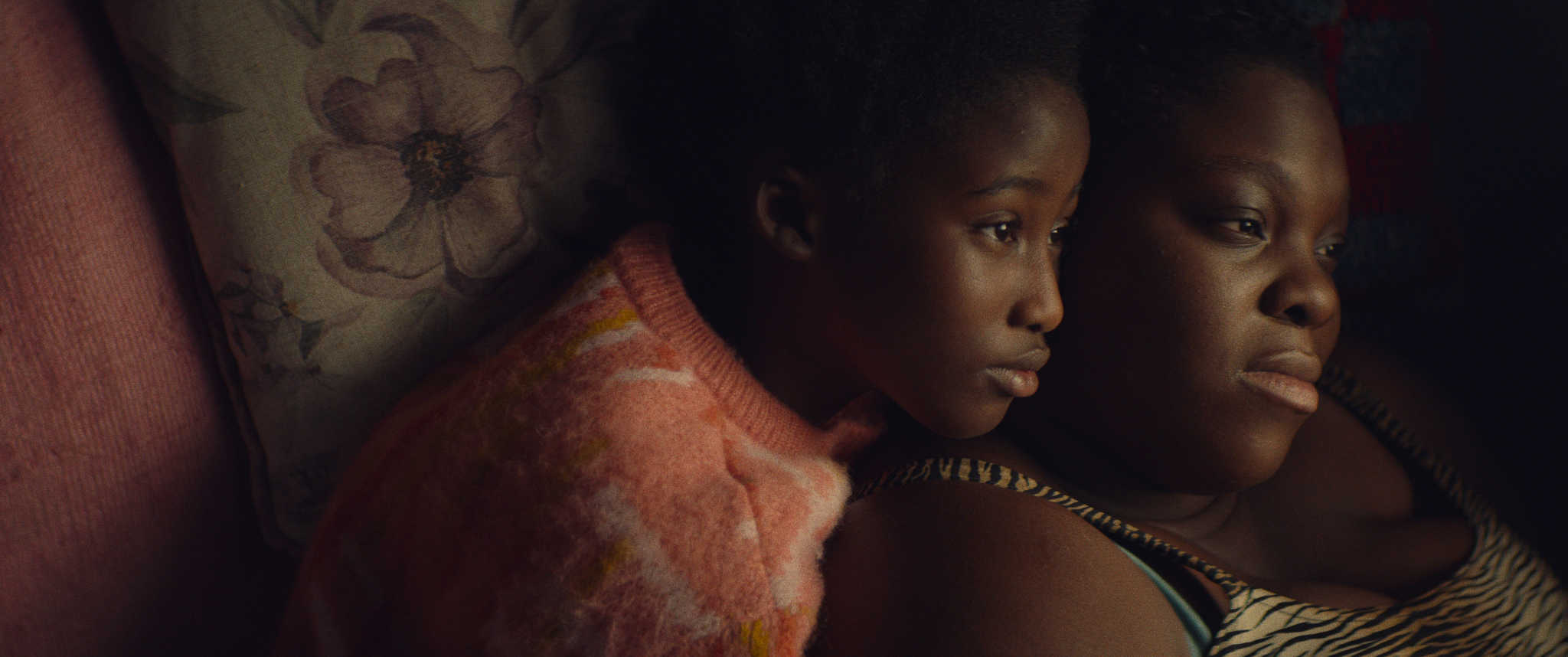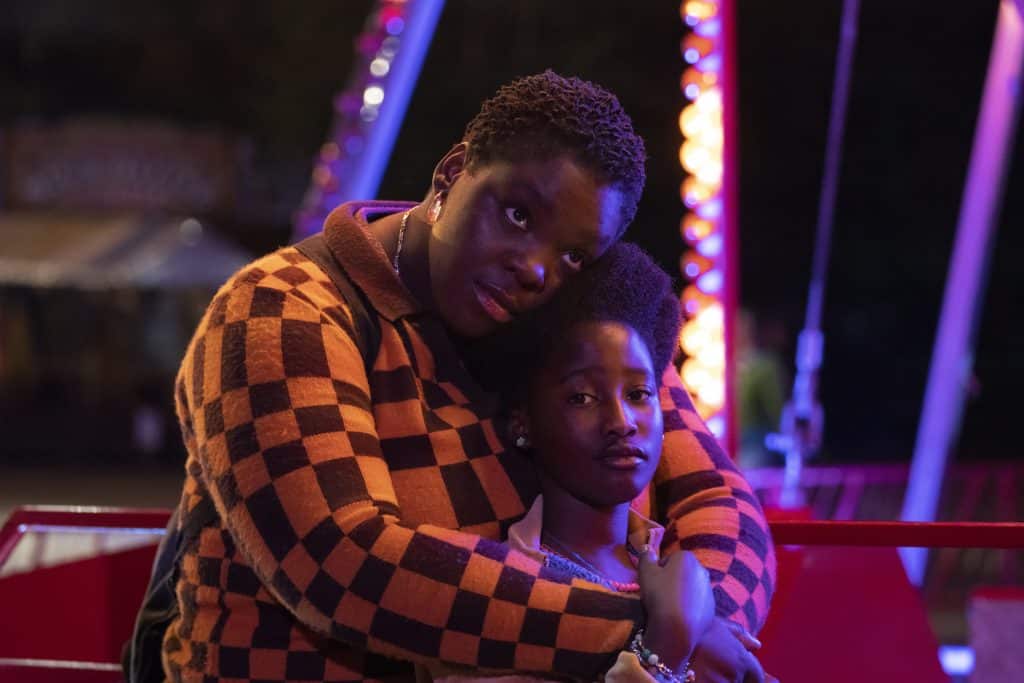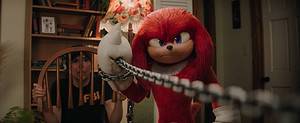Trauma, when left untreated, can impact the trajectory of our entire lives in ways big and small. Those invisible scars we carry with us that refuse to heal, or that we don’t know how to let heal, can be passed on to the next generation if we aren’t careful. Writer-Director Adura Onashile’s debut feature explores the impact of unresolved trauma for adults and the danger it poses to the well-being of the next generation.
The film follows Grace (Déborah Lukumuena) and Ama (Le’shantey Bonsu), a mother-daughter duo who have shut the world out and regard anyone outside of their tiny circle with distrust and suspicion. 24-year-old Grace is stern and protective of her daughter, but meek and quiet when forced to deal with the rest of the world. She only speaks to her boss, social workers, and Ama’s teachers when it’s absolutely necessary, and never makes eye contact. Their bond begins to fray around the edges when Grace is forced to return to school by a social worker and begins to make friends and step into young adulthood. Grace is fearful of what might happen to her daughter if she isn’t under her watchful eye and tries her best to keep her daughter sheltered. Even if it’s against young Ama’s will.
The chemistry between Lukumuena and Bonsu is palpable from the moment the film opens on the two of them having a conversation while cuddled together in bed. There is such a tender and beautiful push and pull between the two that makes the mother-daughter dynamic believable. Lukumuena as the socially awkward and traumatized Grace is astounding and heartbreaking all at the once. She desperately wants to protect her daughter and will do anything to accomplish that.

One scene in particular that stands out is when Grace tells Ama a story about her trip to a well one day as a child. She prayed for a friend that would never leave her, but it’s Lukumuena’s expression that gives away that there’s so much more to the story. Quick flashbacks during Grace’s panic attacks reveal a more sinister reason for that day’s significance. In a grim twist of fate, her prayer for a “friend” was answered.
Young Bonsu proves to be a powerhouse of an actress as well. She’s able to flit between happy-go-lucky child burgeoning on young adulthood and discovering the world to wayward daughter who loves her mother but resents her for being overprotective, with ease. Like her older co-star, she’s able to communicate with her facial expressions what she’s holding back. In her face is pain, joy, love, and anger all at once. She’s a talented young actress with a bright future in the industry.
The lighting in the film is also worth mentioning and praising. Although the lighting in the Grace and Ama’s apartment tends to be dark, usually to give the appearance that they’re not home, the walls are painted in warm colors to show that it is indeed a safe haven for the duo. The dark, neon-lit nights Grace walks through, counting every step she takes away from her apartment, bring to life the thrills Grace’s adult peers are having while she’s taking care of her child and paralyzed by her unresolved childhood trauma.
The film leaves you on a hopeful, but bittersweet note as Grace takes steps to heal her inner girl. We know that eventually, she’ll be okay, and so will Ama. Girl is a thoughtful and emotional exploration of unresolved trauma, parent/child relationships, and finding the courage to heal so that the next generation can thrive.
Girl had its World Premiere in the World Cinema Dramatic Competition section of Sundance Film Festival 2023.
Director: Adura Onashile
Writer: Adura Onashile
Rated: NR
Runtime: 87m
A moving yet painfully bittersweet exploration of generational trauma
-
GVN Rating 8
-
User Ratings (0 Votes)
0

Writer. Video Essayist. Film/TV Critic. Pop Culture Enthusiast.
When he isn’t writing for Geek Vibes Nation or The Cinema Spot, Tristian can be found typing away at one of the novels or screenplays he’s been working on forever.







